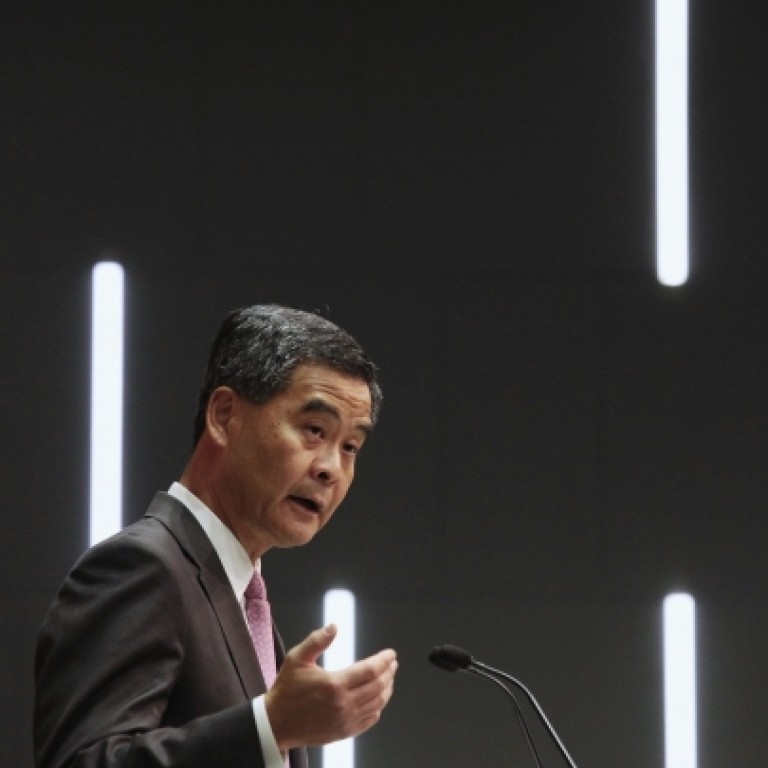
Don't blame the people for any lack of democratic 'software' in Hong Kong
Albert Cheng says attempt by Leung supporters to set parameters for the 2017 and 2020 elections is just a ploy to buy him time to serve another term
Two executive councillors, Fanny Law Fan Chiu-fun and Lam Woon-kwong, this week commented on universal suffrage and democratisation for Hong Kong. It was no coincidence but, instead, part of a scheme by supporters of Chief Executive Leung Chun-ying to set the parameters and direction for the chief executive election in 2017, and the Legislative Council election in 2020.
Lam avoided discussing universal suffrage for the chief executive poll and focused only on the 2020 Legco election.
Even though the two tried to present a liberal and transparent approach, the entire exercise was designed to blow their own trumpets. It's well known that, according to a decision by the National People's Congress Standing Committee, the chief executive election in 2017 has to be resolved first so that the leader elected can deal with the 2020 arrangements.
Law, a diehard Leung supporter, tried to dress up her pseudo-democratisation theories by saying that any democratic system must have both hardware and software. Her ulterior motive was to highlight the lack of political talent in Hong Kong, and buy time for Leung so that he could serve a second term.
She said that to seek further democratisation doesn't mean we should insist only on an electoral system that allows one person, one vote, and that having a government elected through universal suffrage will not necessarily solve all our problems.
What she meant was that Hong Kong people should just accept what's being handed to them - caged democracy - because that's the reality.
Democracy allows eligible citizens to participate equally, either directly or through elected representatives, in the proposal, development and creation of policies and laws. It's not perfect, but it is the best political system to fulfil our common goals and maintain our core values.
We understand it cannot resolve all our social problems.
Law cited the work of economist Joseph Schumpeter, which she said suggested there were four prerequisites for a successful democracy.
The first is to have the right political talent, something that, according to Law, Hong Kong seriously lacks. The fact is we are not short of talent; it's just that talented people are unwilling to go into politics because they are discouraged by the current system.
If the principles of "one country, two systems" and "Hong Kong people ruling Hong Kong" are upheld, to allow real universal suffrage, more talented people will certainly consider contributing to politics. The bottom line is they don't trust the Chinese Communist Party.
The Hong Kong government is responsible for the failure to nurture political talent, especially the Education Bureau. Its policies have never encouraged independent thinking. Law, as a former permanent secretary for education and manpower, was thick-skinned enough to complain about the dearth of political talent when she was one of those responsible for the deficiency.
Meanwhile, the government's continued delay in drafting legislation on political parties has also restricted the development of party politics in Hong Kong. The entire political environment, including the level of incompetence and ignorance in the top echelons of our administration, is disheartening and does nothing to inspire public participation.
Then there is the matter of the politicisation of our executive-led system. The rise of filibustering in Legco and the public's use of judicial review to challenge the government are nothing but a force to counter the growing autocratic tendencies of our executive branch that disregards public opinion. This imbalance could be resolved once we adopt a system that would see the chief executive coming from the ruling party.
Another precondition concerns the professional knowledge and commitment required of our bureaucrats to develop our democratic system.
As long as civil servants respect history and appreciate our reality, no one would question the system - which supports the credibility of the government as well as its effective governance. But the Leung administration and people like Law have dented the morale of civil servants.
The fourth precondition concerns democratic self-discipline, which requires a high level of intelligence and moral standing. This needs to begin at the very top - that is, the chief executive. It cannot work if the head of government has no credibility, never mind his advisers. If the people have lost faith in democracy and the public system, the blame should rest solely on the government.
When it comes down to it, the original sin is that there is no genuine "one country, two systems" or "Hong Kong people ruling Hong Kong". Hong Kong is ruled by the leading cadres of the Communist Party.

